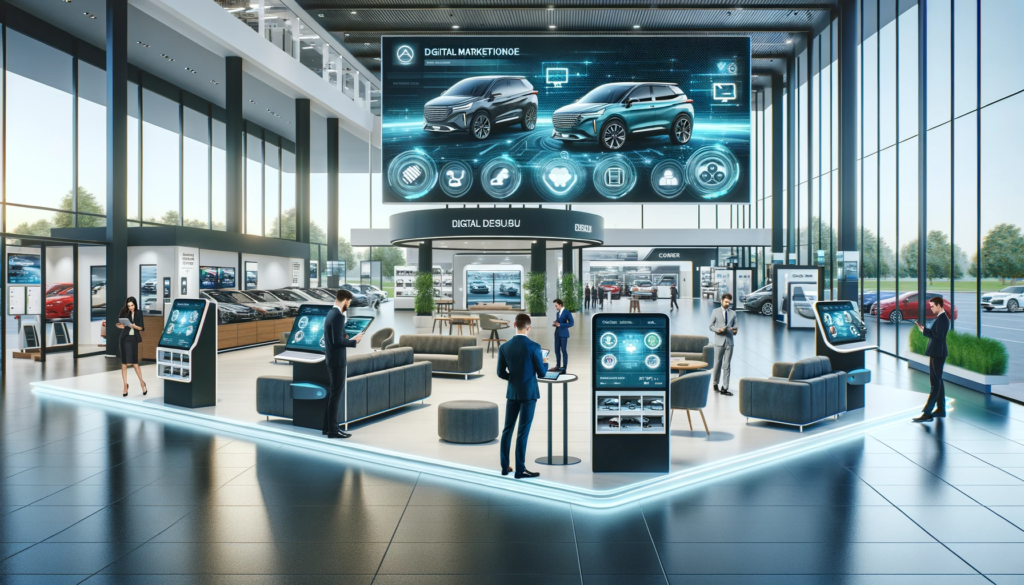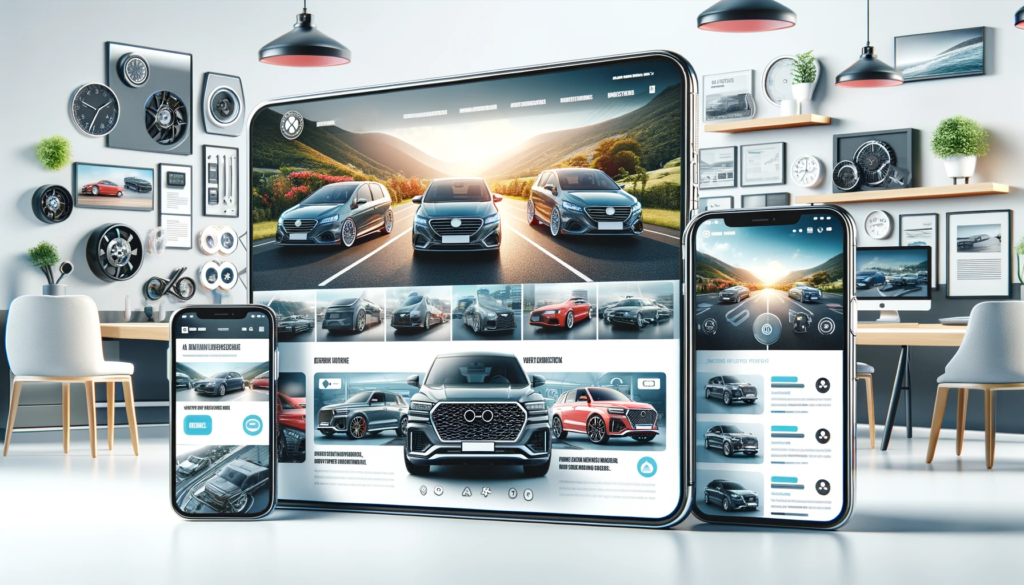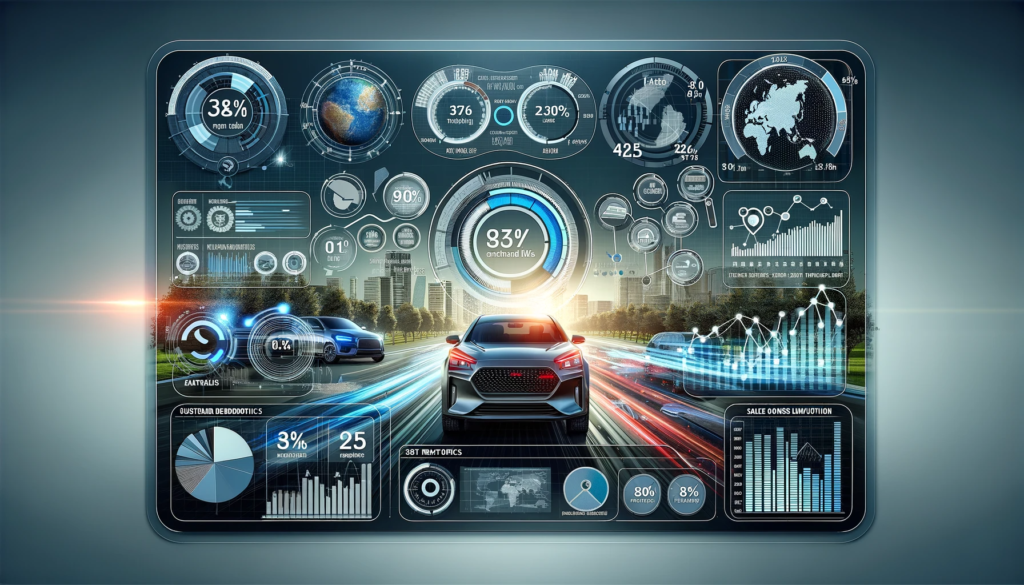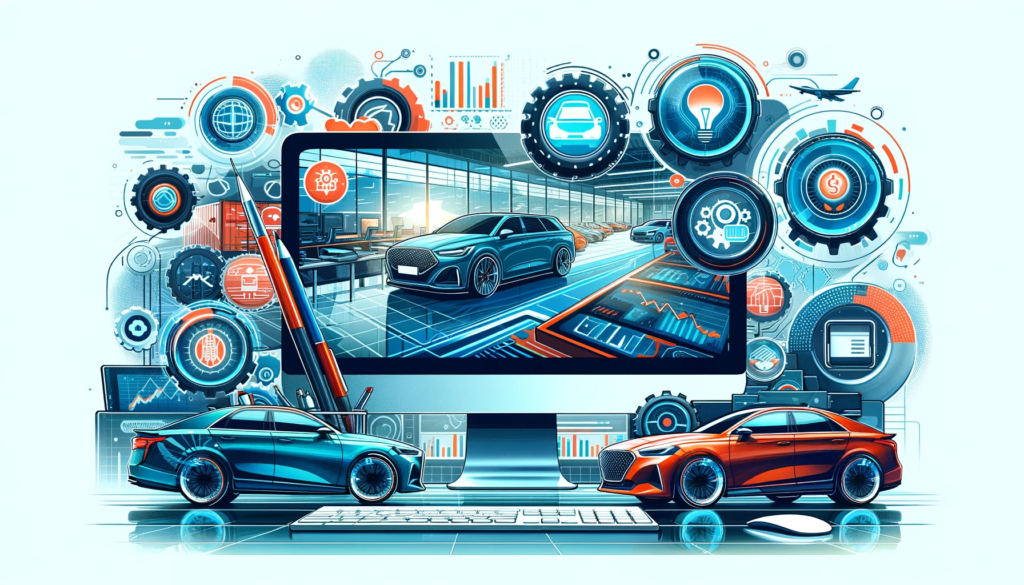The automotive industry, once dominated by physical showrooms and face-to-face interactions, has witnessed a monumental shift toward the digital realm. This transition isn’t just a trend; it’s a response to a changing consumer landscape where digital channels are increasingly becoming the primary avenue for potential buyers to research, compare, and make purchasing decisions.
Consumer Shift to Online Platforms
In recent years, there’s been a noticeable shift in consumer behavior, with a growing preference for online research and shopping. As Shawn Ryder notes, “Today’s car buyers are more informed and empowered than ever before. They spend a significant amount of time researching online before they even step foot in a dealership.” This change necessitates a robust online presence for dealerships, ensuring they are a part of the customer’s research process.
The Digital Window to Your Dealership
Digital marketing serves as the window through which customers glimpse into what a dealership has to offer. A strong online presence is no longer a luxury but a necessity. “Your digital footprint is your first impression,” Shawn emphasizes. In an era where first impressions are often made online, dealerships need to ensure their digital presence accurately represents their brand, values, and the quality of their services.
Meeting Customers Where They Are
The key to successful digital marketing in the automotive industry is meeting potential buyers where they are: online. This involves not only having an engaging and informative website but also being present and active on social media platforms, online forums, and review sites. Shawn Ryder points out, “Engaging with customers online is crucial. It’s about being where they are, providing the information they seek, and establishing a relationship even before they visit the dealership.”
The Competitive Edge
In a highly competitive market, standing out is critical. Digital marketing offers various tools and strategies, such as search engine optimization (SEO), targeted advertising, and content marketing, which can set a dealership apart. “It’s about more than just selling cars; it’s about building a brand and connecting with customers on a deeper level,” says Shawn. By adopting innovative digital marketing strategies, dealerships can differentiate themselves and build a loyal customer base.
The Long-Term Benefits
The benefits of digital marketing extend beyond immediate sales. It plays a crucial role in building long-term relationships with customers, gathering valuable data and insights, and continuously adapting to meet market demands. As Shawn Ryder puts it, “Digital marketing is an investment. The efforts you put in today will pay dividends in the long run, from building a strong brand to creating a loyal customer community.”
The importance of digital marketing in the automotive industry cannot be overstated. It’s a dynamic and essential tool for connecting with modern consumers, standing out in a competitive landscape, and driving long-term success.

Website Optimization for Automotive Dealerships
In the digital age, a dealership’s website is often the first point of contact with potential customers. Hence, optimizing the website is crucial for attracting and engaging visitors, eventually leading them down the path to a purchase.
User-Friendly Design
A user-friendly design is paramount. “Your website should be easy to navigate, with a clear structure and intuitive layout,” advises Shawn. This includes having a responsive design that adapts to various devices, quick loading times, and easily accessible information about vehicles, services, and offers.
Strong Visual Appeal
The visual appeal of a website cannot be overstated. High-quality images, engaging videos, and a clean, modern aesthetic can significantly enhance the user experience. “Visual elements should not only showcase your inventory but also reflect the brand image of your dealership,” says Shawn.
SEO Best Practices
Implementing SEO (Search Engine Optimization) best practices is essential for increasing the visibility of your website on search engines. This includes optimizing titles and descriptions, using relevant keywords, and creating quality content that resonates with your target audience. “SEO is a game-changer for online visibility. It helps potential customers find you when they are actively searching for vehicles or dealership services,” Shawn points out.
Engaging and Informative Content
Content is king in the digital world. Providing engaging, informative, and up-to-date content is key to keeping visitors on your website and encouraging them to explore further. This can include blog posts, vehicle reviews, customer testimonials, and FAQs. “Content not only helps in SEO but also establishes your dealership as a trustworthy and knowledgeable source,” explains Shawn.
Conversion Optimization
Finally, optimizing your website for conversions is critical. This involves creating clear calls-to-action (CTAs), simplifying the inquiry process, and offering easy-to-use contact forms. “Every element on your website should guide the visitor towards making an inquiry or visiting the dealership. It’s about creating a seamless journey from online browsing to offline purchasing,” Shawn advises.
Website optimization is a multifaceted approach that encompasses design, content, SEO, and user experience. By focusing on these elements, automotive dealerships can significantly enhance their online presence, attract more visitors, and ultimately, drive more sales.

Leveraging Social Media to Connect with Potential Buyers
Social media has become an indispensable tool in the digital marketing arsenal of automotive dealerships. Its power to connect brands with potential buyers dynamically and interactively is unparalleled.
Building a Strong Social Media Presence
The first step is establishing a strong social media presence. “It’s crucial to be active on platforms where your potential buyers are,” says Shawn. This means creating profiles on major social networks like Facebook, Instagram, Twitter, and LinkedIn, and ensuring they reflect the dealership’s brand and values.
Engaging Content that Resonates with Your Audience
Creating content that resonates with the target audience is key. This can include showcasing new and used cars, customer testimonials, behind-the-scenes looks, and industry news. “Your content should be engaging and provide value to your followers,” advises Shawn. Interactive posts, like polls and quizzes, can also increase engagement.
Utilizing Social Media Advertising
Social media platforms offer powerful advertising tools that can be used to target specific demographics. These tools allow dealerships to reach potential customers based on their interests, behaviors, and location. “Targeted advertising on social media can be a cost-effective way to reach potential buyers and drive traffic to your website,” Shawn explains.
Building Relationships Through Engagement
Social media is not just about broadcasting content; it’s about building relationships. Responding to comments, messages, and reviews shows that the dealership values its customers and is attentive to their needs. “Engaging with your audience is essential. It helps build trust and loyalty,” Shawn emphasizes.
Tracking and Analyzing Performance
Finally, tracking the performance of social media activities is crucial for understanding what works and what doesn’t. Using analytics tools, dealerships can measure engagement, reach, and conversion rates. “Analyzing these metrics helps refine your strategy and make more informed decisions,” says Shawn.
Leveraging social media effectively can significantly boost a dealership’s digital marketing efforts. By creating engaging content, utilizing targeted advertising, engaging with the audience, and analyzing performance, dealerships can connect with potential buyers in a meaningful way.

The Power of Data-Driven Marketing
In today’s digital age, data-driven marketing is revolutionizing how automotive dealerships connect with potential customers. Utilizing data effectively can lead to more targeted, efficient, and successful marketing campaigns.
Understanding Your Audience Through Data
Data helps in understanding the preferences, behaviors, and needs of your audience. “Collecting and analyzing data allows you to build a detailed customer profile,” Shawn explains. This can include demographic information, online behavior, purchase history, and more. Such insights enable dealerships to tailor their marketing efforts to resonate with their target audience.
Personalized Marketing Strategies
Personalization is key in today’s marketing landscape. Data enables dealerships to create personalized experiences for potential buyers. “Using data to personalize your marketing can significantly increase engagement and conversion rates,” says Shawn. This includes personalized emails, targeted ads, and content that speaks directly to the individual’s interests and needs.
Optimizing Campaigns for Better Performance
Data-driven marketing allows for continuous optimization of campaigns. By analyzing the performance of different strategies, dealerships can understand what works and what doesn’t. “Regularly reviewing data helps in tweaking and refining your marketing campaigns for better results,” advises Shawn.
Efficient Use of Marketing Budgets
Data-driven decision-making leads to more efficient use of marketing budgets. By understanding which channels and tactics yield the best ROI, dealerships can allocate their resources more effectively. “Data helps in making informed decisions about where to invest your marketing dollars,” Shawn points out.
Staying Ahead of Trends and Competitors
Finally, data helps dealerships stay ahead of industry trends and competitors. Analyzing market trends, customer feedback, and competitive actions can provide valuable insights. “Staying informed and agile in your marketing approach is crucial in the fast-paced automotive industry,” says Shawn.
The power of data-driven marketing cannot be understated for automotive dealerships. It offers a strategic advantage in understanding and engaging with customers, optimizing marketing efforts, and ultimately driving sales and growth.

Shawn Ryder’s Expert Advice on Digital Marketing Success
In this final section, we tap into the wealth of knowledge and experience of Shawn Ryder, a digital marketing expert who has been instrumental in transforming the online presence of numerous automotive dealerships.
Embrace a Customer-Centric Approach
The cornerstone of effective digital marketing is a customer-centric approach. “Understanding your customers’ needs, preferences, and behaviors is vital,” Shawn stresses. Tailoring your digital strategies to meet these needs ensures that your marketing efforts resonate with your target audience.
Consistency is Key
Consistency in messaging, branding, and online interactions establishes trust and recognition. “Your digital marketing efforts should consistently reflect your dealership’s values and brand personality,” says Shawn. This consistency should extend across all digital platforms and touchpoints with customers.
Invest in Quality Content
Quality content is a powerful tool in digital marketing. “Engaging, informative, and relevant content can attract and retain customers,” Shawn advises. This includes creating compelling vehicle descriptions, informative blog posts, and engaging social media content that provides value to the audience.
Leverage the Latest Technologies
Staying abreast of the latest digital marketing technologies and trends is essential. “Incorporating new tools and technologies can give you an edge over competitors,” notes Shawn. This might include virtual reality showrooms, chatbots for customer service, or advanced data analytics tools.
Continuous Learning and Adaptation
The digital landscape is ever-evolving, and so should your marketing strategies. “Being open to learning and adapting your strategies based on market trends and customer feedback is crucial for long-term success,” Shawn emphasizes. Continuous improvement and flexibility can help you stay ahead in a dynamic market.
Shawn Ryder’s expertise underscores the importance of a well-thought-out digital marketing strategy in the automotive dealership industry. By focusing on customer needs, maintaining consistency, investing in quality content, leveraging technology, and being adaptable to change, dealerships can drive significant success in their digital marketing endeavors.

Please rate this post

With over 20 years of experience in the car business, I’ve navigated the evolution of the industry from traditional sales to the dynamic digital age. My journey through various roles in both sales and management has endowed me with a unique perspective on the challenges and opportunities in automotive sales today.
As the founder of Shawn Ryder Digital, I combine my extensive background in technology with my deep understanding of the automotive industry. This synergy allows me to craft digital marketing strategies that are not just effective but tailored to the specific needs of each dealership. My commitment is to drive your sales, enhance your brand awareness, and ensure your dealership thrives in the digital landscape.
Here at Shawn Ryder Digital, we’re not just about providing services; we’re about building partnerships. As I often say, “In the fast-paced world of digital marketing, staying ahead isn’t just an option; it’s a necessity.”
Together, let’s embrace the challenges of the digital age and turn them into opportunities for growth and success. Join me in redefining the future of automotive digital marketing. Let’s accelerate your dealership’s journey to the top.
